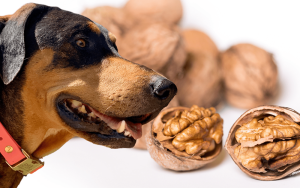Can Dogs Eat Celery? A Comprehensive Guide for Pet Owners

Celery is a healthy, low-calorie snack for humans, and many pet owners wonder if it’s a safe and beneficial treat for their dogs as well. In this article, we will explore whether celery is safe for dogs, its health benefits, potential risks, and how to
incorporate it into your dog’s diet safely. As an experienced writer in the pet care niche, I will provide you with all the essential information you need to ensure your furry friend’s safety while enjoying a crunchy snack.
Is Celery Safe for Dogs to Eat?
Yes, celery is generally safe for dogs to eat. It is non-toxic to dogs, making it a viable and nutritious option for pet owners looking to add variety to their dog’s diet. Celery is packed with vitamins and nutrients that can be beneficial for your dog’s
health. However, like any new food, it’s important to introduce celery slowly and monitor your dog for any signs of allergies or digestive issues.
Health Benefits of Celery for Dogs
Celery offers numerous health benefits for dogs, particularly when fed in moderation. Let’s take a closer look at some of the key nutrients and how they benefit your dog’s overall well-being:
1. Low-Calorie and Low-Fat Snack
Celery is extremely low in calories, making it an excellent treat for dogs that need to maintain a healthy weight. Unlike many commercial dog treats that are high in fats and sugars, celery provides a guilt-free alternative. Whether your dog is on a diet
or simply needs a healthy snack, celery fits the bill.
2. Rich in Fiber
Celery is an excellent source of fiber, which helps promote healthy digestion. Fiber aids in regulating your dog’s bowel movements, preventing constipation, and supporting overall gut health. It can be especially beneficial for dogs with sensitive stomachs
or those prone to digestive issues.
3. Vitamins and Minerals
Celery is rich in essential vitamins and minerals that support your dog’s immune system and overall health. These include:
- Vitamin K: Important for bone health and blood clotting.
- Vitamin C: Acts as an antioxidant and supports immune function.
- Potassium: Helps regulate heart function and muscle health.
- Folate: Supports cell growth and regeneration.
While dogs can produce vitamin C on their own, providing additional sources through foods like celery can still be beneficial, especially for dogs with compromised immune systems.
4. Hydration
Celery contains a high percentage of water, which can help keep your dog hydrated, especially on hot days. Offering celery as a snack can contribute to your dog’s daily water intake, which is vital for maintaining optimal health.
5. Promotes Healthy Teeth and Gums
Chewing on crunchy vegetables like celery can help clean your dog’s teeth by removing plaque buildup. The act of chewing also promotes gum health, providing a natural way to support oral hygiene in addition to regular tooth brushing.
Are There Any Risks to Feeding Dogs Celery?
While celery is generally safe for dogs, there are a few risks to be aware of. These risks are mainly associated with how celery is prepared and how much is consumed.
1. Choking Hazard
Celery stalks can be difficult for dogs to chew, particularly for smaller dogs or puppies. If the celery is not cut into appropriately sized pieces, it could pose a choking hazard. To avoid this risk, always cut the celery into small, bite-sized pieces
before offering it to your dog.
2. Digestive Issues
Although celery is high in fiber, too much fiber can cause gastrointestinal upset in dogs. Overfeeding celery can lead to symptoms such as diarrhea or bloating. To prevent this, always start with small portions and monitor your dog for any signs of digestive
distress. If your dog has a sensitive stomach, it’s best to consult with your veterinarian before adding celery to their diet.
3. Risk of Pesticides
Like many vegetables, celery can contain pesticides and other chemicals. To minimize this risk, always wash celery thoroughly before feeding it to your dog, or opt for organic celery. Pesticides can be harmful to both humans and animals, so ensuring that
the celery is clean and free from chemicals is essential.
4. Celery Leaves
While the celery stalks are generally safe for dogs, the leaves can pose a slight risk. Celery leaves contain higher concentrations of certain compounds that can cause mild gastrointestinal upset in some dogs. It’s best to avoid feeding your dog celery
leaves or remove them before offering the stalks.
How to Safely Incorporate Celery into Your Dog’s Diet
To safely introduce celery to your dog’s diet, consider the following tips:
1. Introduce Gradually
When introducing a new food to your dog, it’s important to do so gradually. Start with small amounts of celery and monitor your dog for any signs of digestive upset or allergic reactions. If your dog experiences any adverse effects, discontinue feeding
celery and consult your veterinarian.
2. Cut Into Small Pieces
As mentioned earlier, celery should be cut into small, manageable pieces, especially for smaller dogs. Large chunks can be difficult to chew, increasing the risk of choking. Cutting the celery into bite-sized pieces makes it easier for your dog to enjoy
the snack safely.
3. Moderation is Key
While celery is a healthy snack, it should only be given in moderation. Too much celery can cause digestive issues, such as diarrhea or bloating, due to its high fiber content. A small piece or two of celery as an occasional treat is plenty for most dogs.
As with any treat, celery should make up no more than 10% of your dog’s daily caloric intake.
4. Use Celery as a Training Treat
If your dog enjoys celery, you can use it as a low-calorie training treat. Because celery is crunchy, it can serve as a positive reinforcement tool during training sessions without adding unnecessary calories. However, keep in mind that it may not have
the same appeal as more traditional treats like meat or cheese, so use it accordingly.
5. Serve Celery with Other Vegetables
To provide even more variety in your dog’s diet, consider serving celery alongside other dog-friendly vegetables such as carrots, green beans, or cucumbers. This will not only give your dog a wider range of nutrients but also make snack time more interesting.
What to Do If Your Dog Doesn’t Like Celery
Some dogs are more finicky eaters than others and may not immediately take to celery. If your dog refuses to eat celery, don’t worry. You can try mixing it with other treats or food they enjoy, such as peanut butter (ensure it’s xylitol-free), or incorporate
it into homemade dog food recipes. However, always be mindful of what you are adding to the mix to ensure that everything is safe and appropriate for your dog.
When to Avoid Feeding Celery to Your Dog
There are certain situations in which celery may not be suitable for your dog:
- Dogs with Kidney Issues: Celery contains a moderate amount of potassium. If your dog has kidney disease or issues with potassium regulation, it may be best to avoid celery or consult your veterinarian first.
- Dogs with Gastrointestinal Sensitivity: If your dog has a sensitive stomach or digestive issues, celery may cause bloating, gas, or diarrhea. In these cases, it’s best to avoid giving celery or to offer it in small amounts only after
discussing with your vet. - Puppies or Small Breeds: Small puppies or toy breeds may struggle to chew celery, making it a potential choking hazard. Always chop celery into smaller pieces to prevent any risk of choking.
Conclusion
In conclusion, celery can be a healthy, low-calorie, and hydrating snack for dogs, offering a variety of nutrients that support their overall health. It’s a great way to add variety to your dog’s diet and provide them with a crunchy treat that also promotes
dental health. However, as with any new food, moderation is key, and it’s essential to introduce celery slowly and monitor your dog for any adverse reactions.
Remember to prepare celery safely, cut it into small pieces, and avoid feeding the leaves. If you have concerns about how celery fits into your dog’s diet, or if your dog has specific health issues, it’s always best to consult with your veterinarian before
making any significant changes to their diet.
With the right precautions and a balanced approach, celery can be a tasty and nutritious treat that both you and your dog can enjoy!






